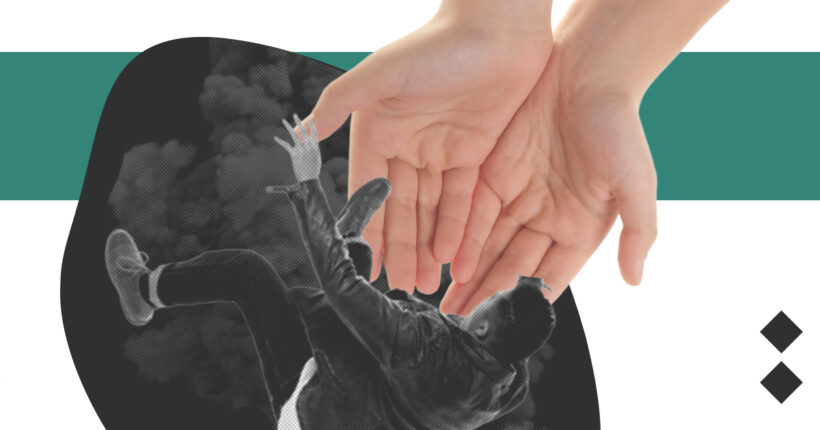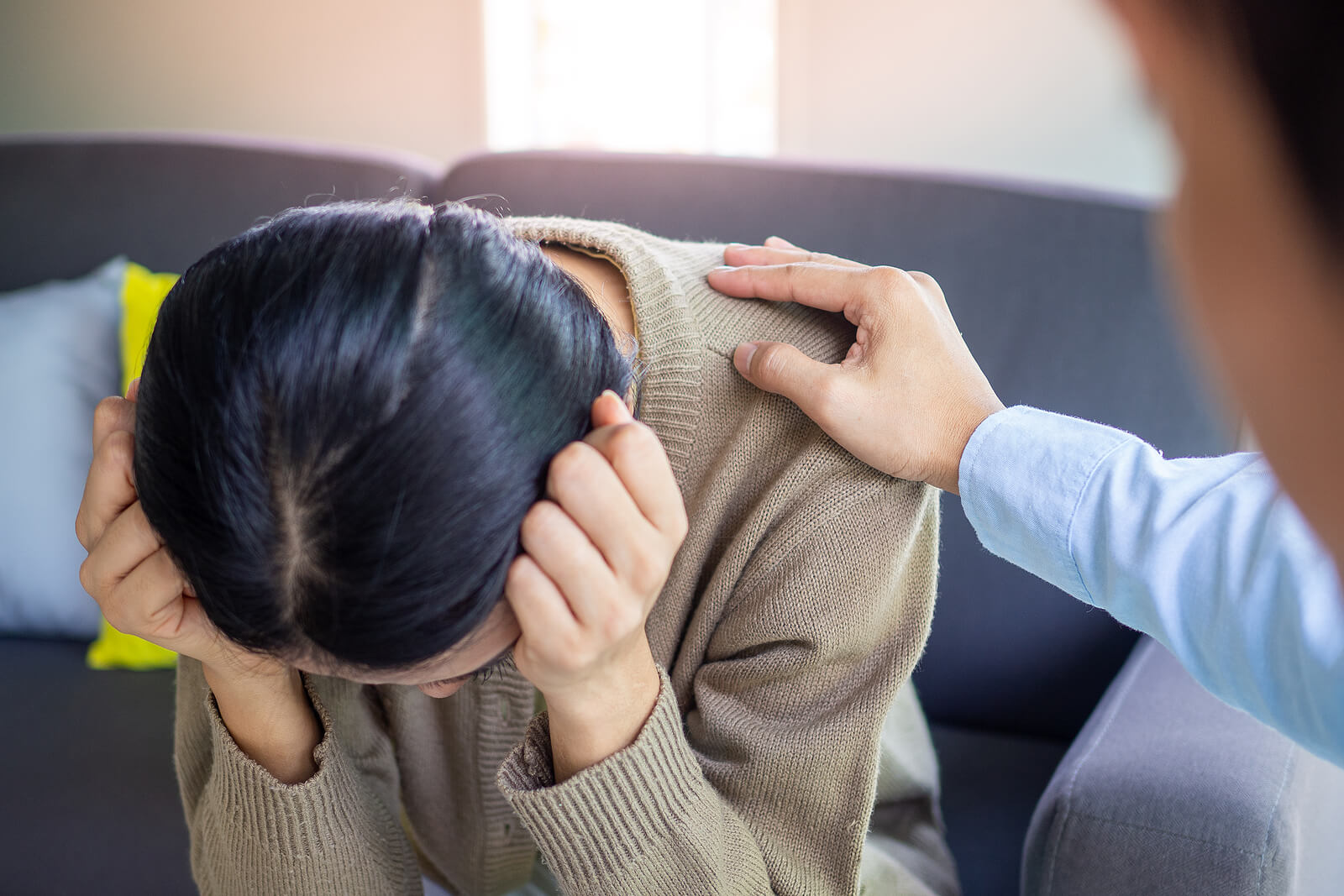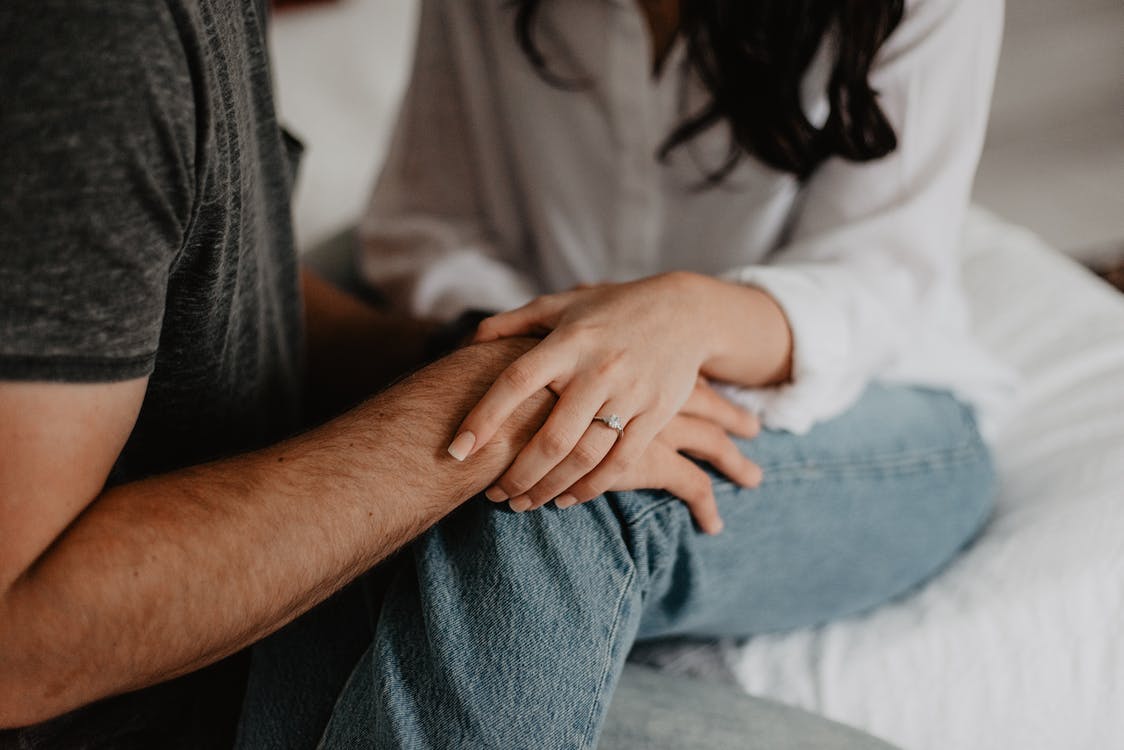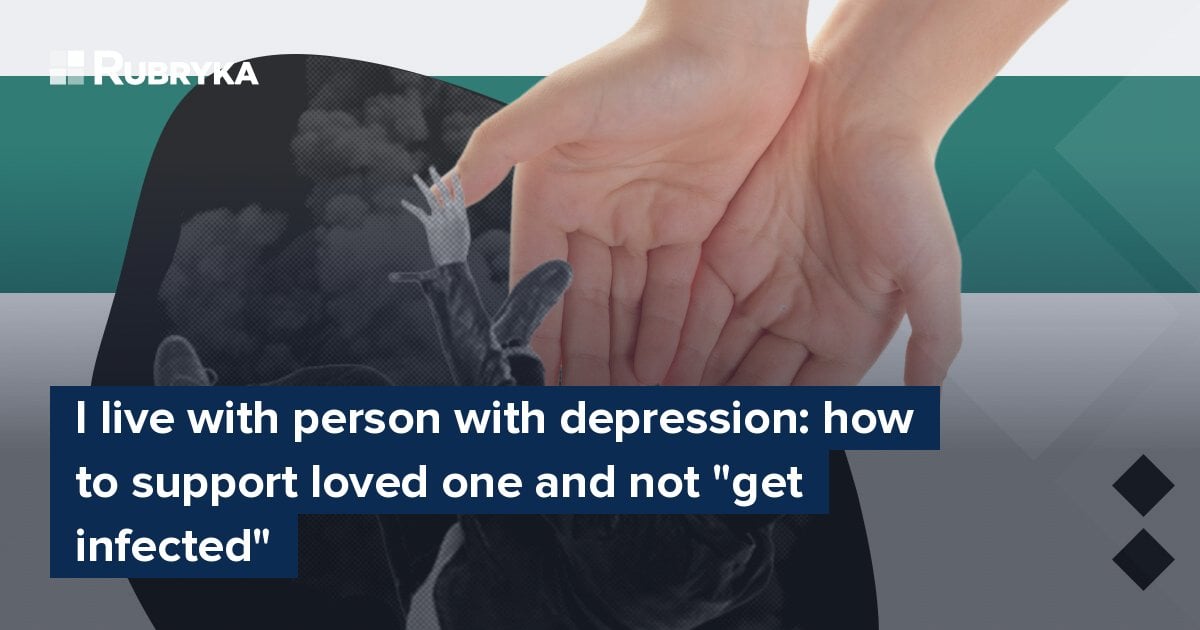
What is the problem?
Chronic stress, going through grief or clinical depression?
For almost two years, even in the deep rear, Ukrainians have been under constant stress. Economic and everyday difficulties are reinforced and complicated by reports of new bombings and information attacks by the enemy, making the brain boil with tension.
This stress has already turned chronic on a general and global scale. This undoubtedly has and will have an impact for a long time, with consequences and repercussions on life and its quality, the physical and emotional well-being of people, and relationships between them and society at all levels.
According to Tetiana Yanenko, currently, in Ukrainian society it is possible to diagnose all conditions — from acute stress to clinical depression and PTSD. The specialist explains that all this is a natural reaction of our psyche to circumstances. Here, it is necessary to distinguish between clinical depression as a diagnosis and depression as a stage of going through grief and loss of life meanings and landmarks. If the former means changes in biochemical and physiological processes in the human brain, the latter is already an inevitable part of life for most of us and occurs much more often.

Illustrative picture.
Important. Tetiana Yanenko emphasizes that if you observe symptoms of clinical depression, like changes in eating or sleeping patterns or obsessive thoughts about death in a loved one, it is essential to immediately contact a specialist. Clinical depression is not about moral weakness; it is about a disease at the level of brain biochemistry. Since depression belongs to the spectrum of affective disorders, its clinical condition is diagnosed by a psychiatrist and treated accordingly, usually with medication in combination with psychotherapy.
In living through grief, which is war for Ukrainians today, depression follows such stages as denial, anger, and bargaining. It is one of the important stages of living and accepting grief, a moment of gradual, inevitable acceptance of a sad, painful reality. We slow down, feel exhausted from the external and internal struggle against what has already come and happened, and in some sense, we humble ourselves and accept reality as a fact. Only after surviving this decline can we move to the next stage — acceptance. When we are in the "here and now," we adapt, learn to survive, live, and fight further under new conditions.
The struggle process also has its stages and phases. Psychologists distinguish four phases of living through war:
- Heroic — it usually begins after panic and is associated with a strong emotional response to what is happening.
- The honeymoon phase: society unites very strongly, every task is quickly completed, there is a large collective response to needs.
- The phase of disappointment and loss of illusions. Psychoemotional stress during this period can change with increased fatigue and apathy.
- Reconstruction phase: a new foundation is being built in society.
"It is important to realize that these states and phases will affect each of us at different times. All of us will experience them at the personal and collective levels," notes Yanenko. Given that in society, all these stages do not occur synchronously, in interpersonal relations, we may encounter another problem — desynchronization in feelings and perception of surrounding events. And that's normal. After all, everyone has their own individual ways of accepting reality, adapting, and fighting for life and happiness.
What is the solution?
Be close and control your own mental health
Living next to someone who experiences depression both clinically and as a stage of grieving is equally difficult. The psychologist draws attention to the fact that, naturally, changes in well-being and self-perception are also reflected in the condition of loved ones of a person who suffers from clinical depression or experiences depression as a stage of grieving. Often, partners suddenly begin to feel that they are on different wavelengths, or even on different planets with each other, note that they are not understood, distance themselves. Depression as a condition and disease negatively affects the interest in relationships and communication because the emotional sphere is dulled, and the libido can be lower. Therefore, partners can interpret it as if they have fallen out of love, that their partner is no longer interested in family and relationships. The psychologist often hears from clients words like "I don't recognize him/her; it's like a different person," and "he/she has never behaved, spoken, or reacted like that before."
Yanenko emphasizes that it is essential not to draw premature conclusions here. Usually, after diagnosis and treatment, the situation changes for the better. She also emphasizes that setting yourself up for tolerance, faith, and hope is crucial, and lean on love, affection, and respect for this person. You should tell yourself that this is a stage and a test and that you will overcome it together.
It is normal to sympathize with a person who is depressed. It is natural that if someone close to you is not well, you may feel sad. These feelings also need to be experienced, and it is best to rely on a therapist's support and guidance in this. The psychologist also advises people whose loved ones suffer from depression and are being treated for it to seek help from mental health specialists. After all, you also need support and a certain navigation to live this experience; in each case, it will be individual.
However, Yanenko highlights an important point that will be relevant for most: although it is normal to empathize with a loved one in depression or a depressed state, it is vital to do it in moderation and monitor your own emotions and feelings.
It is valuable and very important to learn not to be afraid of your own emotions. Why do we often try to quickly calm a child who has fallen and is in pain or a person who is upset about something? Because we ourselves are afraid/can't stand it/don't know how to react, what to think, what to feel, and how to act in such situations.
That is why we often try to mask our experiences, pain, sadness, fear, depression and demand or expect it from others. Yes, it is not easy to support, sympathize, and empathize with quality. This requires awareness of the process and practical skills. It is worth devoting time to the study of this issue.
What to do with feelings of guilt and how not to "get infected" with depressive moods
Sometimes, people who live next to a depressed person may feel guilty because someone close to them is practically falling apart while the person themself feels healthy and energetic.
The feeling of guilt arises under the influence of imposed false stereotypes or under the pressure of "good people," who, with "good intentions," usually do even worse. If you are told that you cannot be good (or at least better) than your partner/relative, what kind of love do you have? It is manipulation, and you shouldn't act on it.
The psychologist reminds that clinical depression is a disease, changes in the human brain at the biochemical level. The person's feelings, thoughts, and behavior are the result of these changes. "When someone has the flu or chicken pox, you don't feel guilty that someone got sick and you missed it," emphasizes the psychologist. The main thing is to realize that depression is not just a "bad mood" or "sadness." This is a disease that needs treatment. A person who is close to someone suffering from depression can only offer their support and be there for their loved one. When you suddenly feel a sense of irritation and helplessness, or even a desire to accuse a loved one of "not actively fighting," you should remind yourself: would you have such emotions if this person had the flu?
The psychologist says it is essential not to confuse love, closeness, and empathy with psychological fusion and infection. If your loved one is depressed, then to prove your loyalty and devotion, you don't need to start falling into a pessimistic mood as well.
Whether to get infected or not is a matter of internal self-permission and decision whether or not to follow the path of least resistance. To help a person with depression is to support them on the path of their residence and treatment. This support can be provided only if you yourself are healthy and have enough strength, patience, and resources.
How to act if a person near you is depressed?

Illustrative photo.
Yanenko advises:
1️⃣ First of all, it is important to maintain a stable and appropriate life structure — doing sports, going on weekend trips, celebrating birthdays, preparing gifts, surprises, and delicious food, doing pleasant hobbies, learning new things, working, and studying. You can take for yourself the mantra "Life has not stopped. It has changed, but it continues. Let's live it."
2️⃣ Secondly, take care of yourself. It's not selfish. It is quite reasonable and practical. Plane safety rules prescribe "First put on the mask on yourself, then on the other person." Why? Only in this case, if you are alive and unharmed, can you help others. How to do it:
- Take care of your body, health, and basic needs. Sports, sleep, and nutrition are the base that is the foundation for everything else.
- Find meaning for yourself, even if it is temporary. This helps to find inner support and motivation when external support is lacking. This helps highlight our uniqueness and personality and allows us to preserve it even in the most difficult times.
- Goals, dreams, tasks. When we can dream, we dream; when we have the opportunity — we move towards the goal; when the first and second are too difficult — we solve the daily tasks and responsibilities each of us has.
- Maintain personal, friendly work relationships. It is essential and valuable to maintain and develop relationships with people. There is no point in putting your life on hold. Only life and love can be stronger than war and death. Allowing yourself to live and enjoy is a powerful magic and weapon against depression.
- Our mood, attitude to the situation, energy, motivation, and well-being largely depend on our internal filling of the resource, energy in the physical sense. Yes, it is difficult during wartime. Therefore, it is important to investigate the absorbers of this energy and who and what helps us accumulate it.
- Keep, nurture, use, and find new ways of self-recovery and recreation. If a loved one doesn't want/can't go to the gym, but you can — keep going!
3️⃣ Thirdly, don't try to "help" someone who is depressed: don't try to "cure in two days," console at any cost, release from any responsibilities, pity and cry, shout and bother. There is no need to "get into the soul" and forcibly bring a person to their senses. Such actions can make it even worse. Being there without pushing for a speedy recovery is a significant support you can give.
Newsletter
Digest of the most interesting news: just about the main thing







